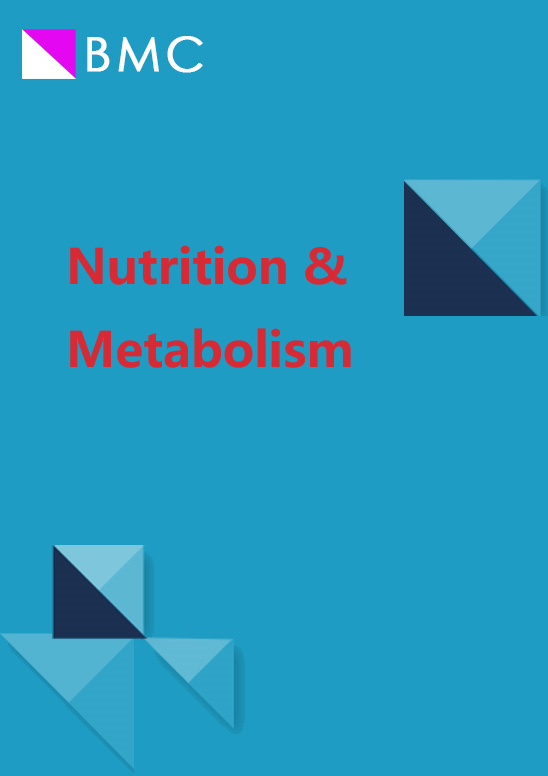Dietary patterns and hepatocellular carcinoma risk: a systematic review and meta-analysis of cohort and case–control studies
IF 3.9
2区 医学
Q2 NUTRITION & DIETETICS
引用次数: 0
Abstract
Globally, HCC presents a significant health burden, characterized by high incidence and mortality rates. Epidemiological studies have increasingly suggested a link between dietary patterns and the risk of hepatocellular carcinoma (HCC), yet consensus on this relationship remains elusive. This study aims to synthesize existing literature and provide a comprehensive analysis of the association between dietary patterns and HCC risk through meta-analytical methods. A systematic search of PubMed, Embase, and the Cochrane Library databases was conducted to identify studies examining common dietary patterns in relation to HCC, published up to August 2023. Study quality was rigorously evaluated using the Newcastle–Ottawa Scale. We employed a random effects model to synthesize effect sizes, calculating hazard ratios (HRs) and 95% confidence intervals (CIs). We identified 13 papers, of these 10 investigating a priori dietary patterns(index-based dietary patterns) and 3 focusing on a posterior dietary patterns (data-driven dietary patterns). Analysis of a priori dietary patterns revealed that higher scores in the Healthy Eating Index (HEI) & alternative HEI (HR = 0.67, 95% CI: 0.54–0.85), Dietary Approaches to Stop Hypertension (DASH) (HR = 0.77, 95% CI: 0.66–0.91), and the Mediterranean diet (HR = 0.65, 95% CI: 0.56–0.75) were associated with a reduced risk of HCC. Conversely, pro-inflammatory dietary patterns were linked with an increased risk (HR = 2.21, 95% CI: 1.58–3.09). In a posterior dietary patterns, a vegetable-based diet was negatively correlated with HCC risk (HR = 0.63, 95% CI: 0.49–0.81). This meta-analysis underscores a significant association between dietary patterns and the risk of HCC. Adherence to healthy dietary patterns characterized by high in vegetables, whole grains, legumes, nuts, and low in red and processed meats may confer a protective effect against HCC, whereas inflammatory diets appear to elevate risk.饮食模式与肝细胞癌风险:队列研究和病例对照研究的系统回顾和荟萃分析
在全球范围内,肝细胞癌的发病率和死亡率都很高,给人们的健康带来了沉重的负担。越来越多的流行病学研究表明,膳食模式与肝细胞癌(HCC)风险之间存在联系,但对这种关系仍未达成共识。本研究旨在综合现有文献,通过荟萃分析方法全面分析膳食模式与 HCC 风险之间的关系。我们对 PubMed、Embase 和 Cochrane 图书馆数据库进行了系统检索,以确定截至 2023 年 8 月发表的研究,这些研究探讨了常见饮食模式与 HCC 的关系。我们使用纽卡斯尔-渥太华量表对研究质量进行了严格评估。我们采用随机效应模型来综合效应大小,计算危险比 (HR) 和 95% 置信区间 (CI)。我们发现了 13 篇论文,其中 10 篇调查了先验膳食模式(基于指数的膳食模式),3 篇侧重于后验膳食模式(数据驱动的膳食模式)。对先验膳食模式的分析表明,健康饮食指数(HEI)和替代 HEI(HR = 0.67,95% CI:0.54-0.85)、高血压饮食疗法(DASH)(HR = 0.77,95% CI:0.66-0.91)和地中海饮食(HR = 0.65,95% CI:0.56-0.75)的得分越高,患 HCC 的风险越低。相反,促炎症饮食模式与风险增加有关(HR = 2.21,95% CI:1.58-3.09)。在后一种膳食模式中,以蔬菜为主的膳食与 HCC 风险呈负相关(HR = 0.63,95% CI:0.49-0.81)。这项荟萃分析强调了膳食模式与 HCC 风险之间的重要关联。坚持以多蔬菜、全谷物、豆类和坚果以及少红肉和加工肉类为特征的健康饮食模式可能会对预防 HCC 起到保护作用,而炎症性饮食似乎会增加风险。
本文章由计算机程序翻译,如有差异,请以英文原文为准。
求助全文
约1分钟内获得全文
求助全文
来源期刊

Nutrition & Metabolism
医学-营养学
CiteScore
8.40
自引率
0.00%
发文量
78
审稿时长
4-8 weeks
期刊介绍:
Nutrition & Metabolism publishes studies with a clear focus on nutrition and metabolism with applications ranging from nutrition needs, exercise physiology, clinical and population studies, as well as the underlying mechanisms in these aspects.
The areas of interest for Nutrition & Metabolism encompass studies in molecular nutrition in the context of obesity, diabetes, lipedemias, metabolic syndrome and exercise physiology. Manuscripts related to molecular, cellular and human metabolism, nutrient sensing and nutrient–gene interactions are also in interest, as are submissions that have employed new and innovative strategies like metabolomics/lipidomics or other omic-based biomarkers to predict nutritional status and metabolic diseases.
Key areas we wish to encourage submissions from include:
-how diet and specific nutrients interact with genes, proteins or metabolites to influence metabolic phenotypes and disease outcomes;
-the role of epigenetic factors and the microbiome in the pathogenesis of metabolic diseases and their influence on metabolic responses to diet and food components;
-how diet and other environmental factors affect epigenetics and microbiota; the extent to which genetic and nongenetic factors modify personal metabolic responses to diet and food compositions and the mechanisms involved;
-how specific biologic networks and nutrient sensing mechanisms attribute to metabolic variability.
 求助内容:
求助内容: 应助结果提醒方式:
应助结果提醒方式:


